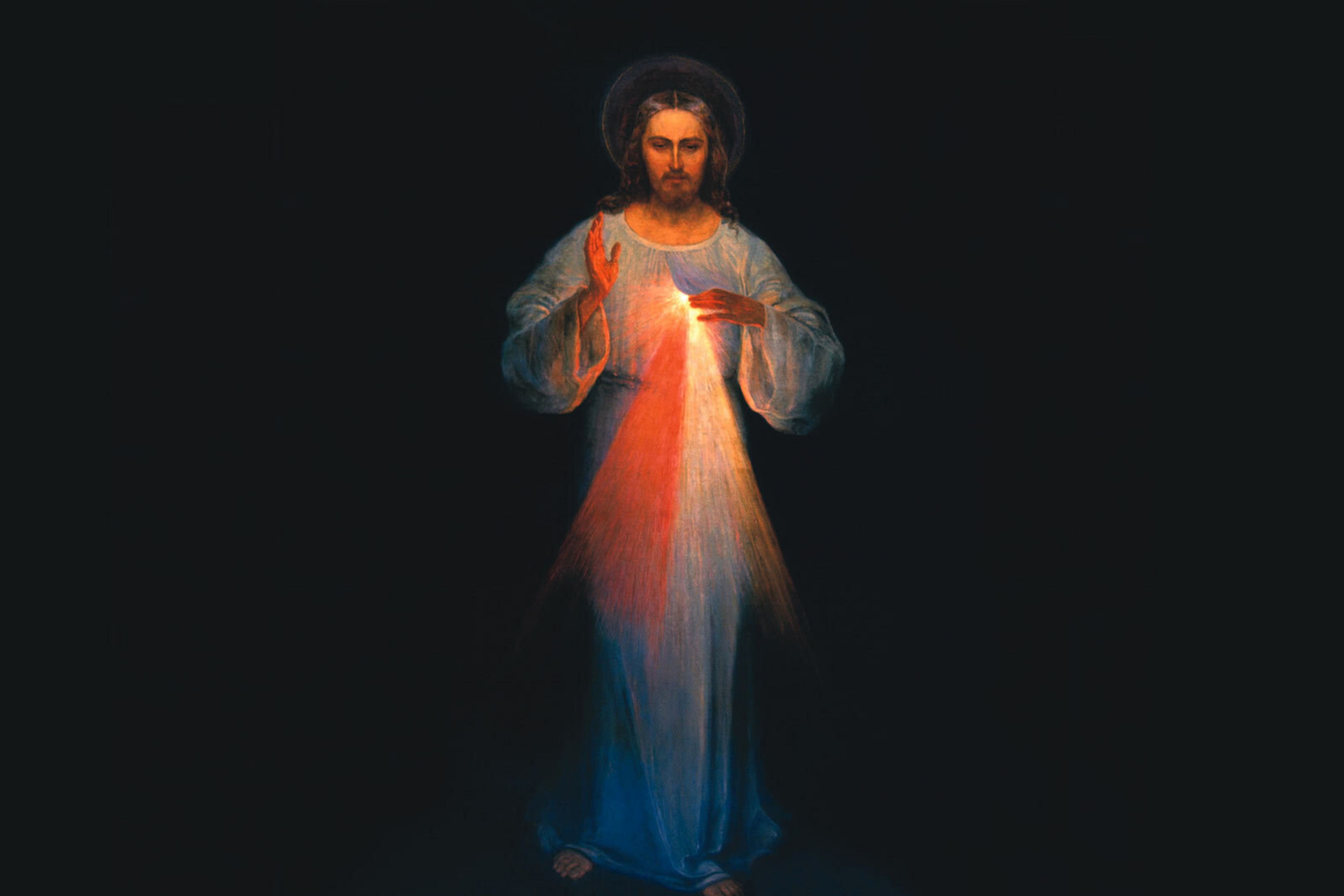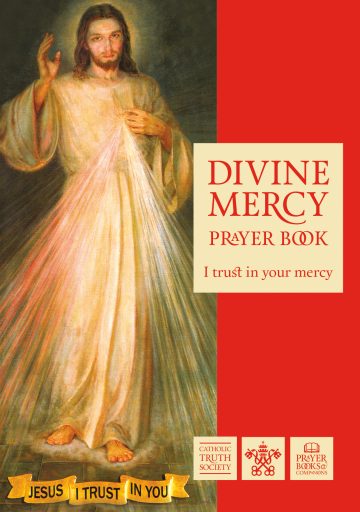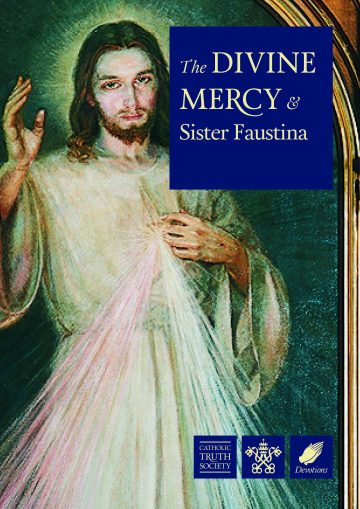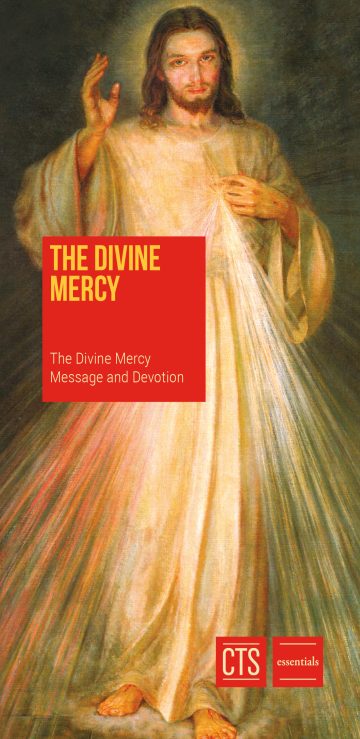Trust
Trust in Jesus is the essence of the message and devotion to the Divine Mercy. When we go to a public fountain, we can draw water from it as long as we have a vessel or container of some kind to put the water in. If our vessel is small, we can only bring back a little water; if it’s large, we can bring back a lot. And anyone with a vessel can draw water from the fountain. The water is there for us, and no one is excluded. All we need is a vessel.
So it is with God’s Mercy. In repeated revelations to St Faustina, Our Divine Saviour makes it clear that the fountain is His Heart, the water is His mercy, and the vessel is trust.
I have opened My Heart as a living fountain of mercy. Let all souls draw life from it. Let them approach this sea of mercy with great trust. (1520) I am offering people a vessel with which they are to keep coming for graces to the fountain of mercy. That vessel is this image with the signature: Jesus, I trust in You. (327) The graces of My mercy are drawn by means of one vessel only, and that is – trust. The more a soul trusts, the more it will receive. (1578)
In the Diary of St Faustina, we hear Our Lord reminding us that we should depend upon His love… that He alone is worthy of our trust:
I never reject a contrite heart. (1485) Sooner would heaven and earth turn into nothingness than would My mercy not embrace a trusting soul. (1777)
But there is more to trust than just believing that God is trustworthy. We have to act upon that belief. Trust involves a turning back to God, a real conversion of our whole lives to God, repenting of our sins and forgiving others. Trust is a living faith. Trust means that we agree to let God be God, instead of trying to be God ourselves. (Trust is the antidote to the first sin of Adam!) It means that we agree that God can write the script of our lives, instead of insisting on our own script. It means that we agree with the great pledge we make in the Our Father: “Your will [not mine] be done on earth as it is in heaven.” It means that even in our moments of agony we agree with the cry of Jesus in the Garden, “Not my will, but Yours be done.” (Lk 22:42)
Mercy
In St Faustina’s Diary, Christ spoke to her about the importance of mercy – not just occasionally celebrating the feast, but living God’s Mercy in our lives:
My daughter, if I demand through you that people revere My mercy, you should be the first to distinguish yourself by this confidence in My mercy. I demand from you deeds of mercy, which are to arise out of love for Me. You are to show mercy to your neighbours always and everywhere. You must not shrink from this or try to excuse or absolve yourself from it.
I am giving you three ways of exercising mercy toward your neighbour: the first – by deed, the second – by word, the third – by prayer. In these three degrees is contained the fullness of mercy, and it is an unquestionable proof of love for Me. By this means a soul glorifies and pays reverence to My mercy. Yes, the first Sunday after Easter is the Feast of Mercy, but there must also be acts of mercy, and I demand the worship of My mercy through the solemn celebration of the Feast and through the veneration of the image which is painted. By means of this image I shall grant many graces to souls. It is to be a reminder of the demands of My mercy, because even the strongest faith is of no avail without works. (742)
Later, St Faustina describes her understanding of Christ’s words to her:
For there are three ways of performing an act of mercy: the merciful word, by forgiving and by comforting; secondly, if you can offer no word, then pray – that too is mercy; and thirdly, deeds of mercy.
And when the Last Day comes, we shall be judged from this, and on this basis we shall receive the eternal verdict. (1158)
God is Mercy itself, and we are called to practice the ABC’s of mercy (Ask for His Mercy, Be merciful to others, Completely trust in Jesus). The trust in Jesus is the vital ingredient. We do not simply ask for mercy, nor do we simply try to be good to other people. We ask with complete trust, and Our Lord fills us with grace so that we can be merciful as our Heavenly Father is merciful.
On this foundation – Trust in God and mercy towards others – are based forms of the devotion to the Divine Mercy given by Jesus to Sister Faustina: The Feast of Mercy, The Image of the Merciful Jesus, The Chaplet, The Hour of Mercy and spreading the devotion to the Divine Mercy.
Learn how to practice this devotion.
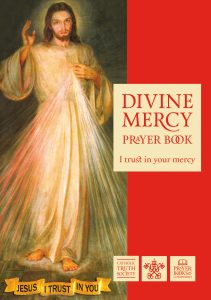 This blog is extracted from our book Divine Mercy Prayer Book. A collection of prayers associated with the Divine Mercy devotion and extracted from St Faustina’s diary are included here alongside traditional Catholic prayers. An explanation of the Divine Mercy devotion and its origins is also included.
This blog is extracted from our book Divine Mercy Prayer Book. A collection of prayers associated with the Divine Mercy devotion and extracted from St Faustina’s diary are included here alongside traditional Catholic prayers. An explanation of the Divine Mercy devotion and its origins is also included.
For more on the Divine Mercy devotion and to support the mission of CTS, order your copy of Divine Mercy Prayer Book today.
